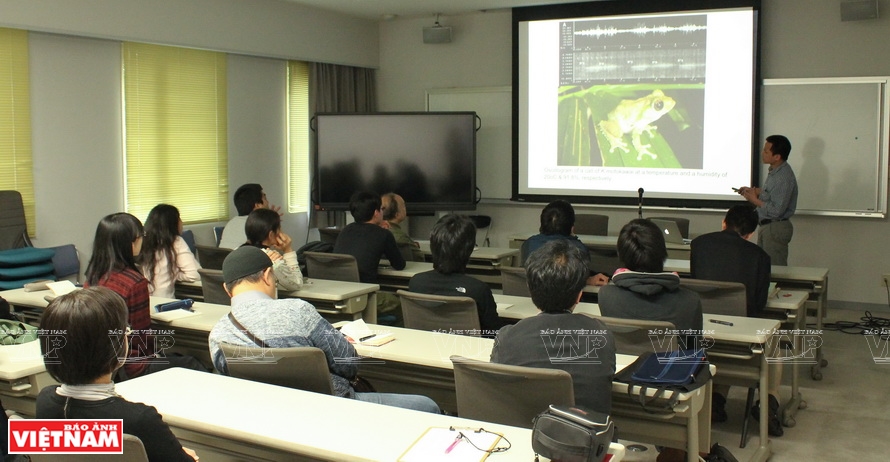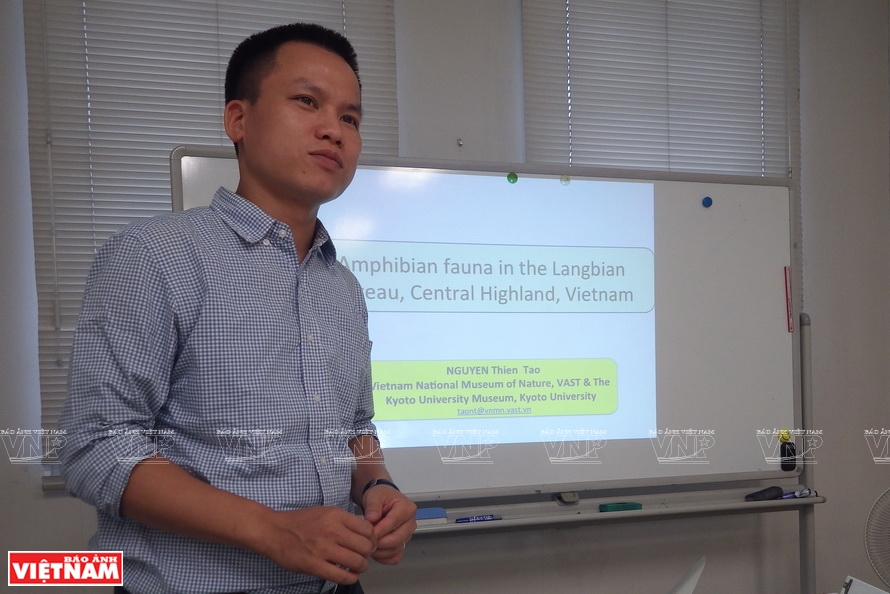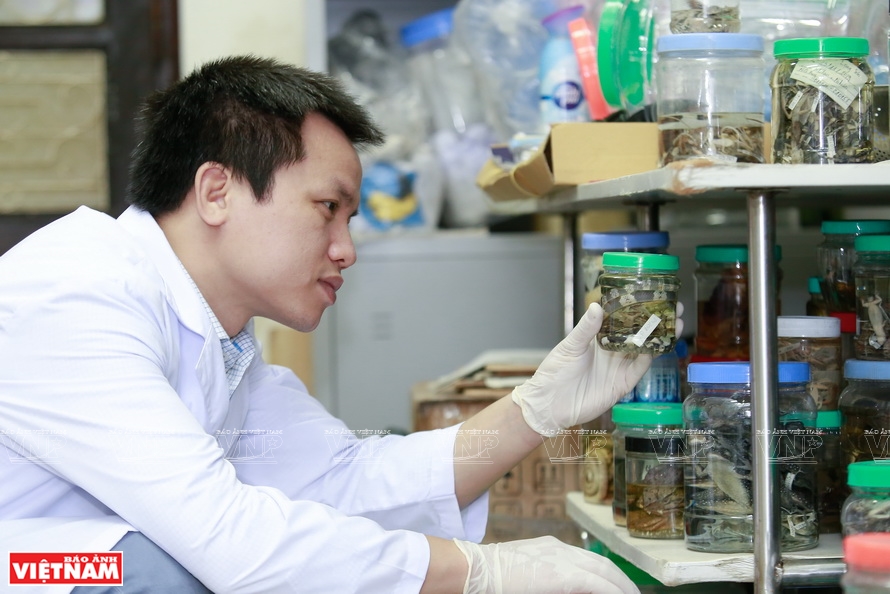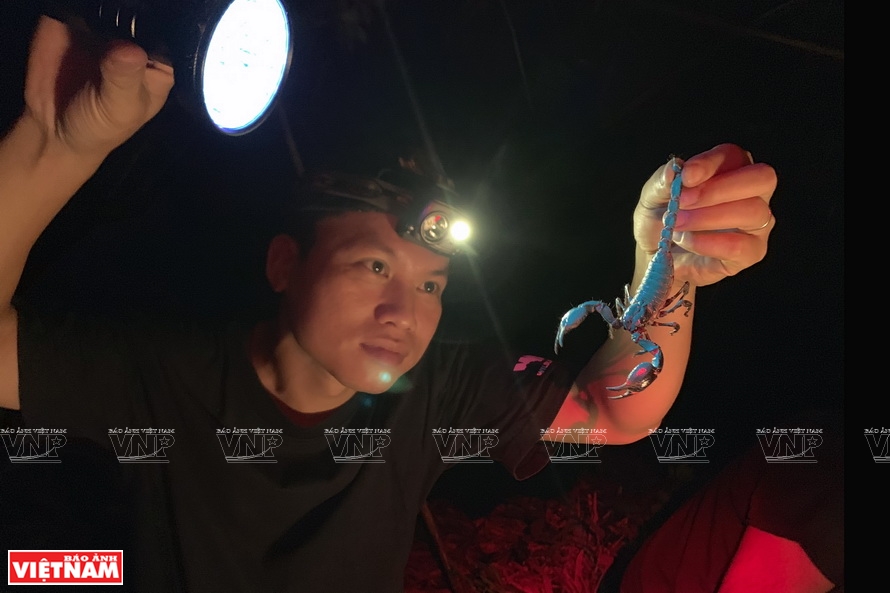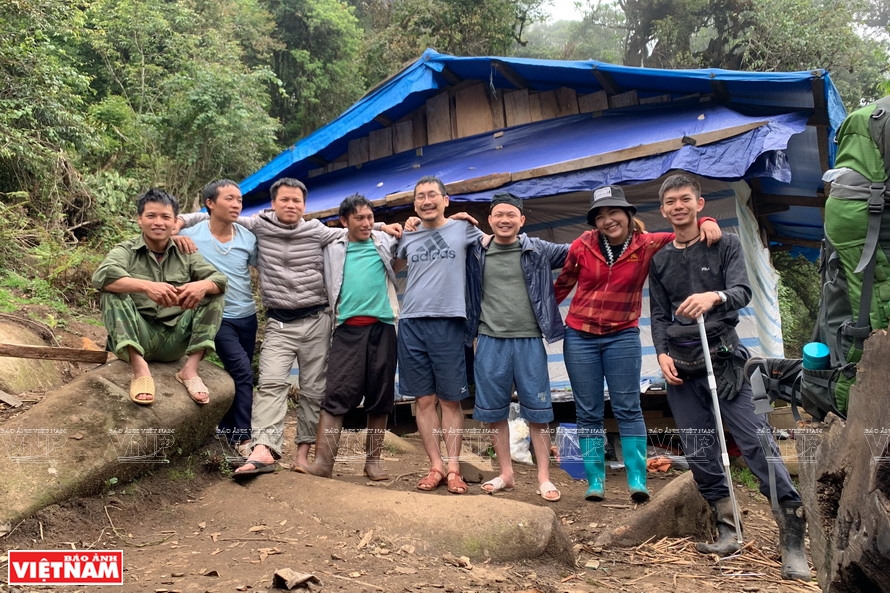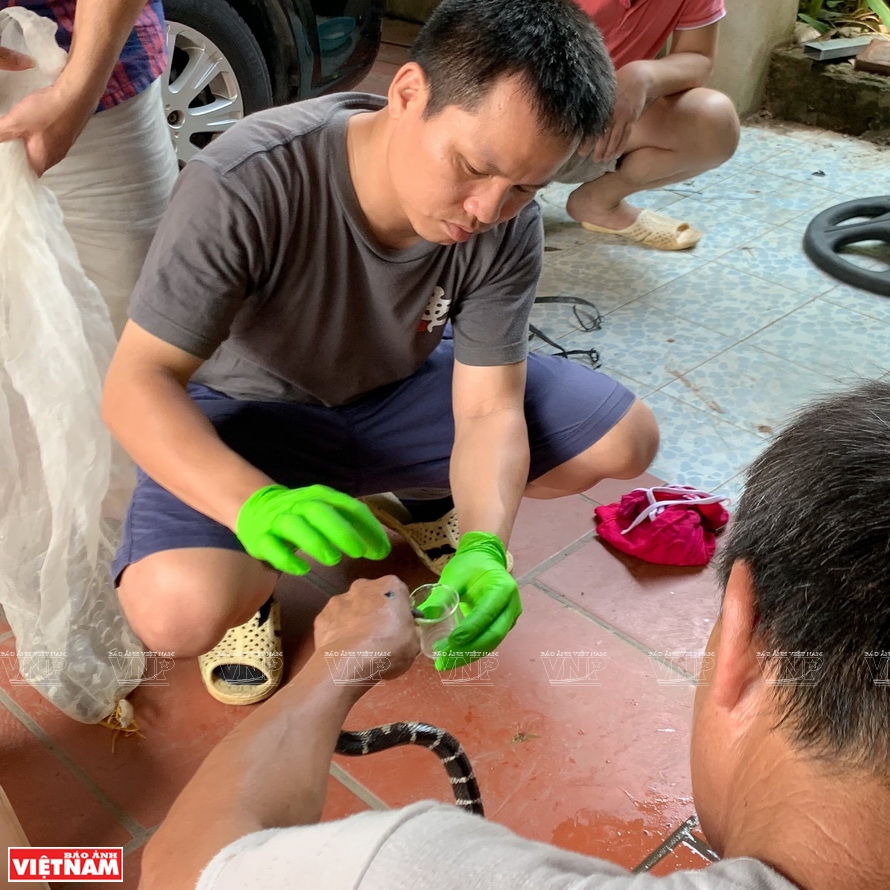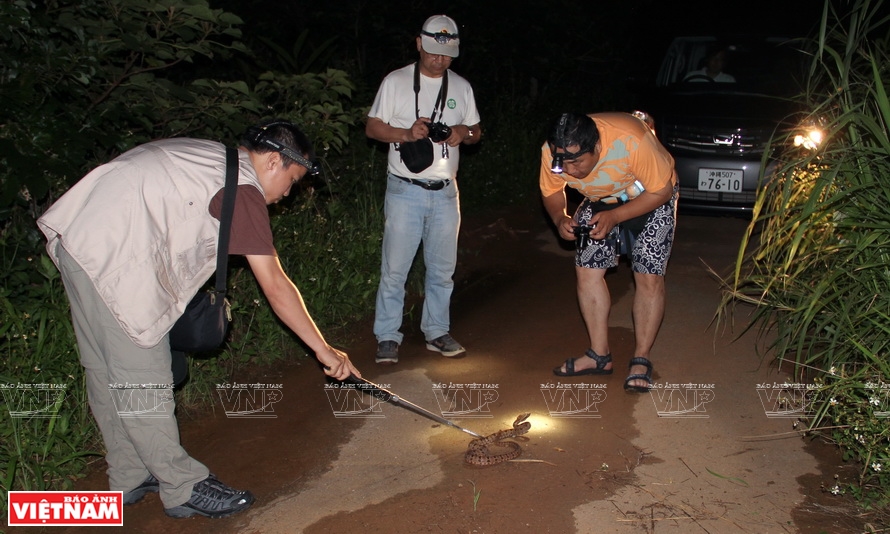Dr. Nguyen Thien Tao’s laboratory at the National Museum of Nature is filled with countless cabinets, bottles, and boxes containing hundreds of thousands of snake venom samples. It has been compared to a museum of diverse samples for snake research in Vietnam. About 200 samples of snakes and venom collected and stored here are the result of hundreds of field trips to almost all the jungles in Vietnam during more than 15 years in Tao’s career.
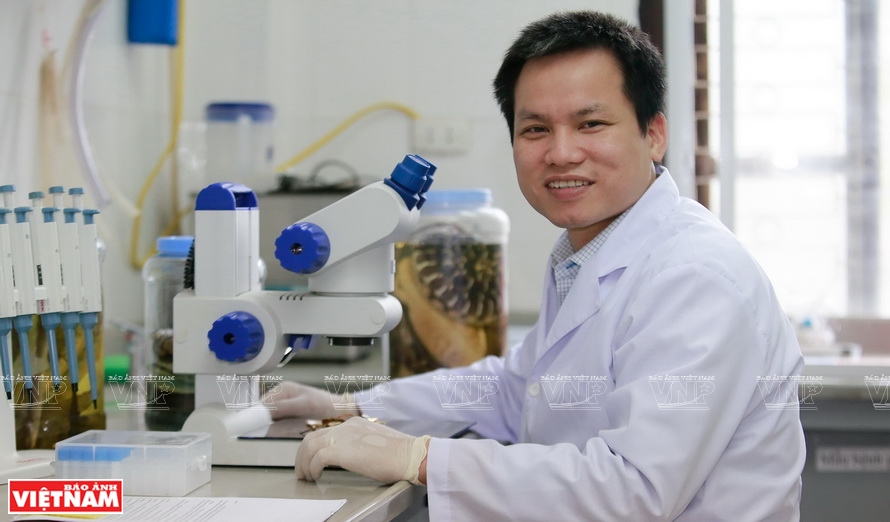 The research team of Dr. Nguyen Thien Tao at the Department of Nature Conservation (Vietnam National Museum of Nature) has collaborated with the Poison Control Center at Bach Mai Hospital to promote works related to the research and production of antivenom serums. Photo: Viet Cuong |
Tao had great interest in discovering reptiles such as snakes, frogs, and the like in his garden and surrounding fields from an early age. His love for nature and interest in snake species developed when he chose to major in biology at Hanoi University of Science.
Vietnam has many snake species, including venomous ones such as cobras, banded kraits and vipers. Bites by these species can cause instant death. Each year, more than 300,000 people are bitten by venomous snakes and treatment in hospitals is expensive. Therefore, the study of snakes, especially the extraction of snake venom to produce serum, has been carried out by 100 countries all over the world, including Vietnam.
Dr. Nguyen Thien Tao has had 100 international publications, including 30 in-depth studies on snakes. His research on snakes has also been introduced at many seminars in Japan and the United States and are highly appreciated by experts. Tao is now a visiting Associate Professor at Kyoto University, Japan.
With more than 200 species of snakes, about 25% of which are venomous, Vietnam has successfully prepared serums to treat venomous bites of the monocled cobra, white-lipped pit viper, king cobra and Malayan pit viper but still has to import almost other serums. Developing serums to secure Vietnam’s independence in the treatment of snake bites is a long-term strategy that the Ministry of Health has advocated for many years.
Currently, Bach Mai Hospital’s Poison Control Center is in the third stage of studying antivenom serums for the monocled cobra and Malayan pit viper. Research in antivenom serum production is an aspirational collaboration between Dr. Nguyen Thien Tao and the Poison Control Center of Bach Mai Hospital. He is gathering and mobilizing all resources to correctly identify species of venomous snakes, secure a stable supply of venom, and begin the formation of production processes on a laboratory scale.
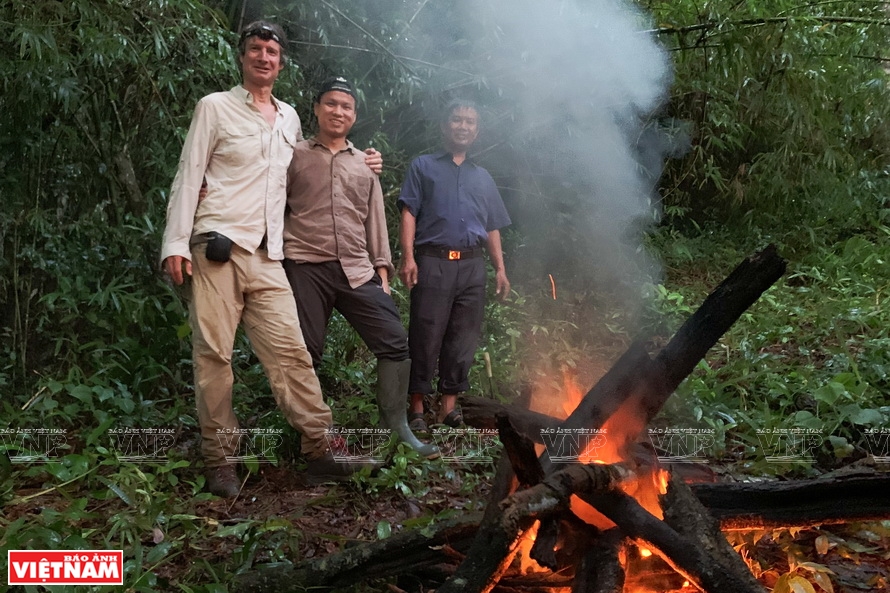 Dr. Nguyen Thien Tao and a team of international experts on a field trip to collect snake samples in Vietnam. Photo: Files |
Every day, Bach Mai Hospital’s Department of Clinical Toxicology sends samples of snake bites to Dr. Nguyen Thien Tao for his evaluation and support so that the doctors can best treat their patients. He has also been to the hospital several times to cooperate with doctors there in diagnosing cases of emergency due to snake bites. After many years of research in the field and with samples of snake bitten patients, Dr. Nguyen Thien Tao has built an initial database of venomous snake epidemiology and identified common venomous snakes to provide an important scientific basis for the research and manufacture of antivenom serums.
His specialized studies identify some common venomous snakes. He has built a database containing images and detailed distribution information of each species of snake in Vietnam. Photos of snakes as well as of the process of extracting snake venom were taken by Tao and an international team of experts with dedicated support from Professor Nikolai Orlov (Russian Academy of Sciences). These are considered the only copyrighted images of snakes in Vietnam, many of them feature snakes and wildlife that are not often seen.
Dr. Tao is also Vietnam’s first young scientist in the field of biology chosen to be an affiliate of the World Academy of Sciences for the term 2018-2022. At scientific forums for research on snakes and wildlife, presentations by Dr. Tao has opened up new cooperation opportunities for biodiversity conservation in Vietnam.
Currently Dr. Tao and a team of international scientists are going on field trips to do research and collect snake samples in Vietnam’s jungles. The footage and images taken during this process are very valuable materials, whose copyrights have been purchased by National Geographic to use in its film in which Dr. Tao is featured as an explorer./.
Dr. Nguyen Thien Tao and his research project “Diversity and conservation of vertebrates in Asia” was awarded the Golden Globe Youth Award in Science and Technology of the Central Committee of the Ho Chi Minh Communist Youth Union in 2015. This project was also the most cited by international scientists in 2015, according to U.S.-based publishing house BioO2.
| Dr. Nguyen Thien Tao and his research project “Diversity and conservation of vertebrates in Asia” was awarded the Golden Globe Youth Award in Science and Technology of the Central Committee of the Ho Chi Minh Communist Youth Union in 2015. This project was also the most cited by international scientists in 2015, according to U.S.-based publishing house BioO2. |
Story: Bich Van – Photos: Viet Cuong and Files

